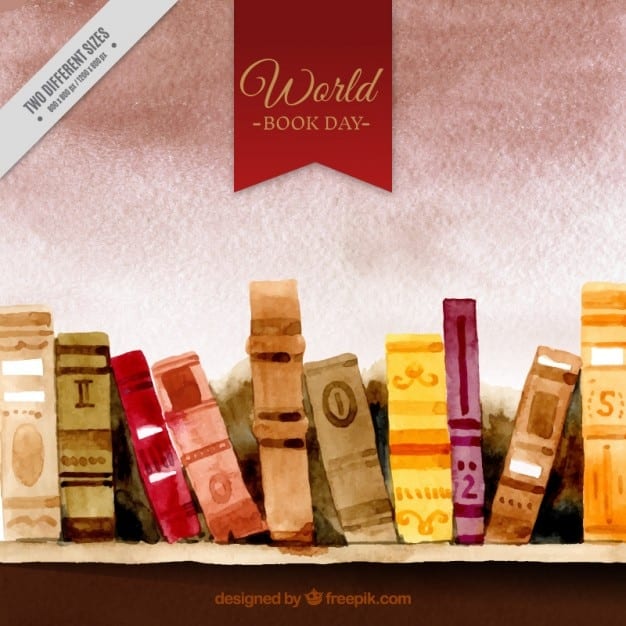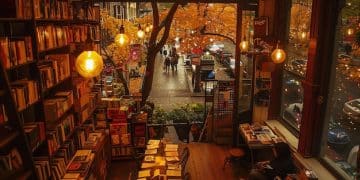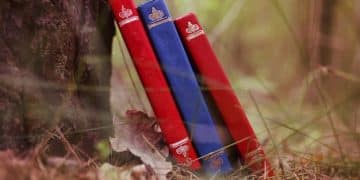10 Must-Read Lists for Aspiring US Novelists in 2025

10 Reading Lists Every Aspiring Novelist in the US Should Devour by 2025 offer a curated selection of essential books ranging from craft guides and literary classics to contemporary works, providing invaluable insights into storytelling, character development, and the nuances of the publishing world.
Aspiring novelists in the US, are you ready to elevate your craft? Dive into these 10 Reading Lists Every Aspiring Novelist in the US Should Devour by 2025, meticulously curated to provide a comprehensive education in the art of storytelling.
Crafting Your Novel: Why Reading Lists Matter
For any aspiring novelist, the journey to publication is paved with countless hours of writing, editing, and, most importantly, reading. But simply reading isn’t enough; it’s about reading with intention, analyzing the techniques of master storytellers, and absorbing the nuances of language and narrative structure.
That’s where curated reading lists come in. They provide a focused and directed approach to learning the craft, guiding you through essential works that will expand your understanding of what makes a great novel.
Benefits of Following Reading Lists
Why should you, as an aspiring novelist, prioritize reading lists? Here are a few key benefits:
- Exposure to Diverse Voices: Reading lists introduce you to a wide range of authors, styles, and perspectives, broadening your literary horizons.
- Understanding Narrative Techniques: Analyzing the works of established authors helps you understand and apply different narrative techniques in your own writing.
- Inspiration and Ideas: Reading can spark your creativity and provide inspiration for your own stories.
- Mastering the Craft: By studying the works of masters, you learn the fundamentals of storytelling, character development, and plot construction.
Reading widely and strategically is not just a pastime; it’s an investment in your future as a novelist. It’s about learning from the best and honing your skills to create compelling and unforgettable stories.
The Foundations: Classics Every Novelist Must Know
Before delving into contemporary works, it’s crucial to establish a strong foundation in literary classics. These novels have stood the test of time for a reason, and they offer invaluable insights into the enduring themes and techniques of storytelling.
These classics are not just relics of the past; they are timeless works of art that continue to resonate with readers today. By studying them, you gain a deeper understanding of the human condition and the power of narrative.

Exploring Timeless Themes
Classic novels often explore universal themes such as love, loss, ambition, and morality. By examining how these themes are treated in different historical and cultural contexts, you can gain a broader perspective on the human experience.
Learning from Master Storytellers
Authors like Jane Austen, Charles Dickens, and Leo Tolstoy were masters of their craft. By studying their works, you can learn about character development, plot construction, and the use of language to create vivid imagery and emotional impact.
Ultimately, engaging with these classics provides a crucial framework for understanding the evolution of the novel and the enduring power of storytelling.
Understanding Genre: Reading Lists for Specific Styles
Knowing the conventions of your chosen genre is essential for any aspiring novelist. Fortunately, well-curated reading lists help you delve deep into the nuances of specific styles and understand what makes them tick.
Immerse yourself in the works that define your genre and discover the patterns, tropes, and narrative structures that resonate with readers. It’s about finding your niche and mastering the techniques that will allow you to create compelling stories within that space.
- Science Fiction: From the dystopian worlds of Orwell and Huxley to the space operas of Asimov and Herbert, understand the possibilities and pitfalls of sci-fi storytelling.
- Fantasy: Explore the epic sagas of Tolkien and Martin, and learn how to build believable worlds and create memorable characters in your own fantasy novels.
- Mystery/Thriller: Master the art of suspense with the works of Agatha Christie and Gillian Flynn, and learn how to craft intricate plots and keep readers on the edge of their seats.
- Romance: Discover the emotional power of romance novels with authors like Jane Austen and Nicholas Sparks, learning how to create believable relationships and evoke strong feelings in your readers.
Choosing the right reading list depends heavily on the style of novel you wish to write. Are you drawn to the sweeping epics of fantasy or the intricate plots of mystery thrillers? Focus on the genre that speaks to you.
The Writer’s Toolkit: Craft Guides and How-To Books
While reading fiction is essential, it’s also important to supplement your education with craft guides and how-to books. These resources provide practical advice and exercises to help you hone your writing skills.
These guides offer tangible tools and strategies to overcome common writing challenges, providing a structured approach to improving your craft. They can help you refine your prose, develop compelling characters, and structure your novel effectively.

Essential Craft Guides for Novelists
Here are some highly recommended craft guides that should be on every aspiring novelist’s reading list:
- “On Writing” by Stephen King: A candid and practical guide to writing from one of the world’s most successful authors.
- “Bird by Bird” by Anne Lamott: A humorous and insightful exploration of the writing process, offering encouragement and advice for overcoming writer’s block.
- “The Elements of Style” by Strunk and White: A concise and essential guide to grammar and style, helping you refine your prose and write with clarity.
By dedicating time to both reading fiction and studying craft guides, you can develop a well-rounded understanding of the art of storytelling and equip yourself with the tools you need to succeed as a novelist.
Contemporary Voices: What’s Hot in the Literary World
While classics provide a strong foundation, it’s also important to stay up-to-date with contemporary literature. Reading new and exciting voices keeps you relevant and exposes you to current trends and styles.
Keeping abreast of the latest releases allows you to see what’s resonating with readers today and identify emerging trends in the literary landscape. It’s about understanding what’s capturing the zeitgeist and finding your own unique voice within the contemporary conversation.
Discovering Emerging Trends
Here’s how to stay informed about the latest releases and discover new and exciting authors:
- Read Book Reviews: Follow reputable book review publications and blogs to discover new releases and gain insights into current trends.
- Join Book Clubs: Engaging with other readers in a book club can expose you to different genres and authors that you might not otherwise encounter.
- Attend Literary Events: Literary festivals and author readings are great opportunities to discover new voices and connect with the literary community.
Reading widely across genres and styles is crucial for expanding your horizons and discovering new possibilities for your own writing. It also lets you better see what already exists on bookshelves and avoid writing a storyline that resembles someone else’s too closely.
The Publishing World: Understanding the Industry
Understanding the publishing industry is as crucial as writing a great novel. Many reading lists do not offer this perspective, but you must take it into account when embarking on this journey. Reading books **about** publishing can clarify the road to success.
Navigating the publishing landscape requires knowledge of agents, editors, marketing strategies, and contracts. Learning about these aspects can empower you to make informed decisions and increase your chances of getting your work published.
- Learn about Agents: Understand the role of literary agents and how to find the right agent for your genre.
- Study Successful Pitches: Look up how some novelists pitched their books to agents and editors to learn important strategies.
- Master Marketing: Understand what it takes to market your novel to readers and build a strong author platform.
By diving into books on the publishing industry, aspiring novelists can transform their understanding of the playing field and increase their success rates.
| Key Point | Brief Description |
|---|---|
| 📚 Classic Novels | Essential for understanding enduring themes and narrative techniques. |
| ✍️ Craft Guides | Provide practical advice and exercises to hone your writing skills. |
| 🌟 Contemporary Authors | Keep you relevant and aware of current trends in literature. |
| 🏢 Publishing Industry | Understanding this landscape can empower you to get your work published. |
Frequently Asked Questions
▼
Reading lists expose you to diverse voices, narrative techniques, and genres. They provide a structural way to master your craft. Reading the correct books can help you hone your voice.
▼
Classics like “Pride and Prejudice,” “Moby Dick,” and “One Hundred Years of Solitude” are essential. They help with character development, plot construction, and universal themes in stories of all types.
▼
Craft guides offer practical advice, exercises, and strategies to hone your writing skills. Stephen King’s “On Writing”, for example, is great at clarifying the process of novel-writing.
▼
Reading books that reflect more recent trends exposes you to emerging writers. You also keep up with current styles and expand your horizons. Ultimately, read what you like to read.
▼
Understanding publishing helps you navigate agents, editors, marketing strategies, and contracts. Having knowledge of these aspects increases your chances of getting your novel published and read.
Conclusion
By 2025, aspiring novelists in the US will find themselves well-equipped to make a mark with the curated reading lists above. These lists are designed to provide a balance of foundational knowledge, practical writing skills, and industry insights, fostering the next generation of literary talent.





